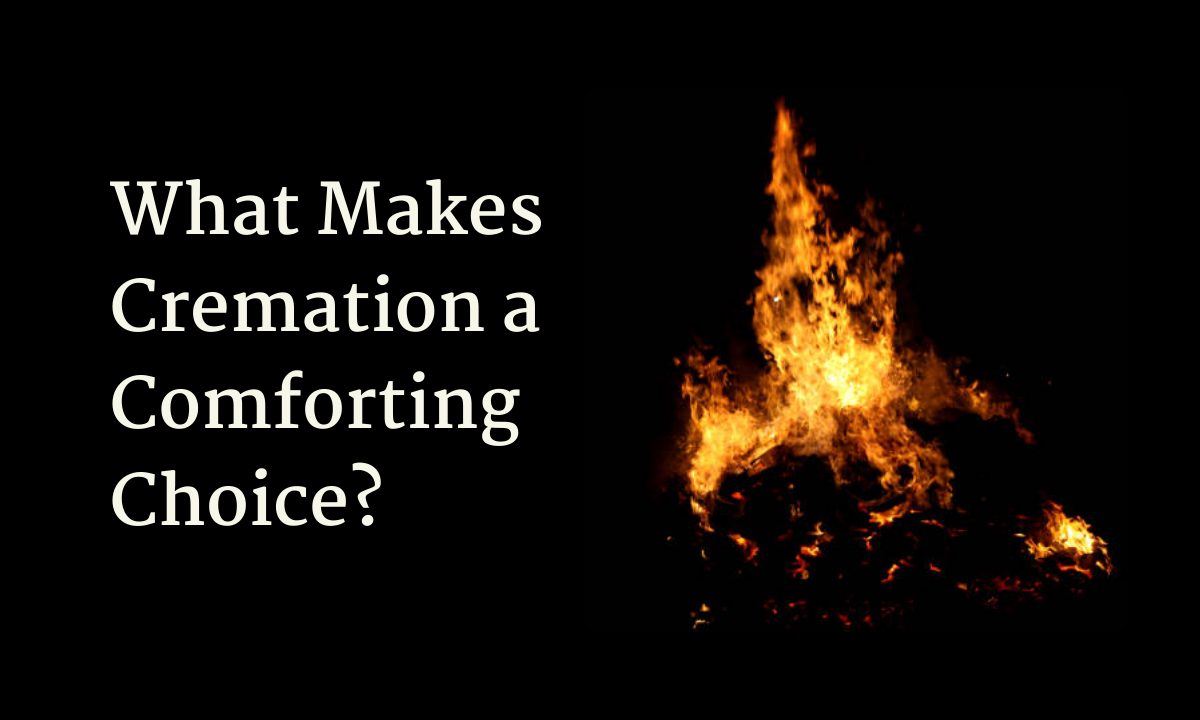Introduction
We are in that era of mankind where people have gained consciousness and awareness regarding environmental adversities accompanied by increased practices enriching mother earth and preserving nature’s beauty and authenticity. This global shift towards sustainability practices and the cultivation of a greener lifestyle is reflected in multiple domains of life including, increased use of electric vehicles, mindful clothing and textile choices, conscious food sourcing etc. Amidst this gradual wave of eco-consciousness and sustainability, a pertinent question arises: Can these arising principles regarding environmental responsibility be extended to the domain of funerals and cremation rituals? In fact, is a funeral itself environmentally friendly?
The answer to that question has to be a huge resounding Yes! Let us read further and explore the various adversities surrounding conventional funeral rituals and explore the available solutions against it!
Defining Eco-Friendly Funeral: Introducing the Idea
Funerals may not be the first item that springs to mind when talking about eco-friendliness traditionally. However, the principles of sustainability and reverence for the environment may also be used here. In a culture that is strongly connected to the rhythms of life and nature, it is essential that the decisions we make when bidding goodbye to loved ones match our beliefs.
However, the idea of green funerals is still in its infancy and needs to be further explored. What makes a funeral ecologically sound? Let’s evaluate some prevalent practices and their ecological effects to find out the truth about the ecological implications the funeral rituals have.
Rethinking Traditional Practices: A Glimpse into Burial Practices
Burial practices are often considered and appear eco-friendly; owing to the natural process of decomposition and biodegradable benefits. l is one of the practices that has been followed throughout the globe for Centuries together now. It’s been humanity’s way of returning the departed to the earth. However, when you look back and thoroughly explore the complete journey it reveals certain specifics that awaken a second thought in your mind regarding the practice that has been practised for ages together.
Prior to conducting the burial, the deceased’s body is usually embalmed. Embalming is a preservation technique employed to keep the dead body away from decomposing for a longer time. The procedure of embalming traces back to the history of ancient Egypt where preservation and mummification of bodies has been a important aspect relevant to death. This technique has undergone further modernisation on various levels over time and employs various formaldehyde-based chemicals now.
As you might have heard, these chemicals have the potential to cause negative environmental impacts. Unfortunately, when the deceased’s body is buried or earthed, these hazardous chemicals leach into the soil, posing contamination of the soil and leading to other environmental implications. Additionally, the area or region used for cemeteries often involves clearing off weeds, and trees leading to increased deforestation.
Revisiting Cremation: The Eco-Perception
Cremation is another common ritual practised following death. It involves subjecting the deceased’s body to flame or intense heat so as to turn the body into its ash remains.
Is the process of cremation friendly to the environment? Let us gain a broader understanding and gain perspectives on both ends.
As mentioned earlier, the process of cremation requires high temperature for combustion which demands a substantially high degree of energy. The traditional crematory practices of burning the body along with wood emits moderately harmful compounds like carbon dioxide, carbon monoxide, nitrogen oxide etc which can potentially lead to air pollution and increased contamination.
When it comes to modern cremation norms, electrical cremation has taken a stand high since it is considered relatively eco-friendly in comparison to burning practices. But there is more to it. The furnaces used for electrical cremation requires high energy to be able to reach temperatures uto 870-980 degree Celsius so the sustainability factor is often questioned. Although they can save a lot of resources like wood, kerosene and other fuels, one cannot deny the fact that it requires a lot of energy and contributes to greenhouse gases indirectly contributing to further negative environmental impact and quality of life.
Aquamation: A Truly Environmentally Sound Alternative
Reading through the negative implications of funeral practices you might wonder what other practices can be looked upon so as to preserve nature and conserve its authenticity. In light of these factors, we do have a ray of hope towards ecologically sound funeral practice through Alkaline hydrolysis, also known as aquamation. It might not be unheard of or a completely new concept, but it is a choice that one can voluntarily make and complies well with eco-friendly ideals and principles. It’s a strategy with a lot of potential for ecologically sustainable and conscious funerals.
Aquamation, in contrast to other conventional practices, uses water instead of fire. The body remains are placed in a stainless steel chamber, which is then filled with water and highly alkaline materials to speed up and aid decomposition. This organic disintegration or natural breakdown proceeds more quickly and seamlessly. The remains are subsequently handled in a process similar to traditional cremation before it is handed right back to the family. The entire procedure involves the usage of a minimal quantity of water that aligns with eco-friendly ideals. Additionally, aquamation produces no pollutants or hazardous compounds into the air and uses only 10% of the energy utilised by conventional cremation methods. So it is a win-win situation!
Navigating the Transition Towards Sustainability
When considering eco-friendly funeral solutions, guidance and insights from known and reliable experts can prove to be very useful. If you would like to engage and promote ecologically conscious funeral options, we are here to help!
Reach out to Beleiv at [Phone Number] or contact us through the other details provided on the official website. We are committed to supporting you in making decisions that reflect your beliefs and commemorate the life of your loved ones in a way that honours both their memory and promotes a greener environment.





